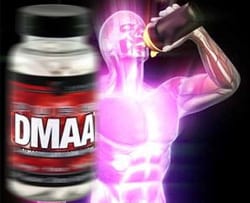
A new comprehensive study appears to derail any hopes the makers of dietary and workout supplements containing the additive DMAA had to keep their products on the market. According to a report at NutraIngredients-USA.com, the findings have been published in the Journal of Analytical Toxicology and reveal that natural geranium oils as well as the […]
 A new comprehensive study appears to derail any hopes the makers of dietary and workout supplements containing the additive DMAA had to keep their products on the market.
A new comprehensive study appears to derail any hopes the makers of dietary and workout supplements containing the additive DMAA had to keep their products on the market.
According to a report at NutraIngredients-USA.com, the findings have been published in the Journal of Analytical Toxicology and reveal that natural geranium oils as well as the “young and mature, fresh and dried leaves and stems” of these plants had absolutely no levels of DMAA (also known as dimethylamylamine or methyl hexaneamine).
This conclusion will make it difficult for the manufacturers of DMAA-based supplements to claim their products are naturally-derived and therefore exempt from the rules enforced by the Food and Drug Administration for products making medical claims. These popular supplements are taken by hundreds of thousands of people across the country and done so as a way to lose weight or build muscle in conjunction with a workout regimen.
The FDA recently ordered 10 manufacturers of these supplements to cease marketing them until they can provide scientific evidence supporting the claims they make of their products, such as them being able to cause weight loss, and that they’re safe and made from natural ingredients.
A growing number of adverse event reports has linked the use of DMAA-based supplements to serious injuries and some deaths. These supplements are believed to cause elevated heart rates that can result in unexpected heart attacks, stroke, or sudden death. The deaths of two U.S. Army soldiers following a training exercise is believed to be caused, at least in part, to them taking supplements sold on their bases that contained the controversial ingredient.
The supplements being targeted by the FDA’s action include: Biorhythm SSIN Juice, Lean Efx, Spirodex, PWR, Napalm, Code Red, Hemo Rage Black, Lipo-6 Black Ultra Concentrate, Lipo-6 Black, Lipo-6 Black Hers Ultra Concentrate, Lipo-6 Black Hers, MethylHex 4,2, Nitric Blast, Oxy Elite Pro, and Jack3D.
The study from a group of researchers, including those at the National Center for Natural Products Research, University of Mississippi, and the U.S. Anti-Doping Agency, put some of these products through the same testing that found geraniums or their oils contained no DMAA and found they have high levels of MHA. The makers claim MHA (or DMAA) is derived from geranium oil or geranium extracts but this evidence refutes that wholly.
Makers of DMAA supplements have been stubborn in acting on the FDA’s order and retailers have vowed to continue selling them unless the agency acts to recall them from the market. As their use increases however, it is likely more people will begin linking symptoms they suffer to their use of the supplements, and more who will suffer adverse reactions to them.
Early signs of complications caused by these supplements could be tightness in the chest or shortness of breath. The FDA has 42 reports from people who blame DMAA-based supplements for psychiatric or nervous system disorders, or death.


